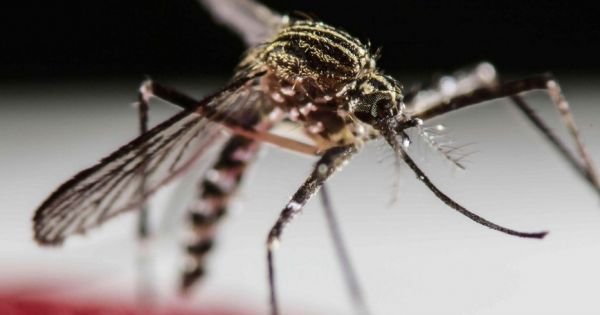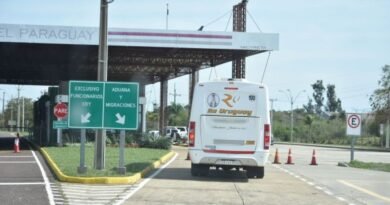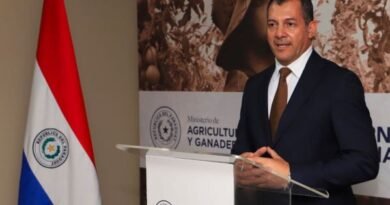Dengue: Paraguayan authorities ready despite surge in number of cases
[ad_1]
Dengue: Paraguayan authorities ready despite surge in number of cases
Most of those who consult or are hospitalized are children, Cabello explained
Although Paraguayan health authorities are already speaking of a dengue epidemic, particularly among children, the South American country’s sanitary network has been reported to be ready for whatever lies ahead, even if combined with a surge of Covid-19 cases, it was reported in Asunción.
Health Surveillance Director Águeda Cabello pointed out in a radio interview that 32% of the confirmed cases of dengue were patients aged between 5 and 10, and 40% were under 15.
Nevertheless, her colleague at the Health Ministry Derlis León assured that the public healthcare network was prepared for a new contingency bringing together dengue and Covid-19 at a time when Intensive Care Unit (ICU) bed occupancy has been reported to stand at 85%, children and adults combined.
In these four months of management, we have prepared ourselves in advance since the training of our human resources back in September. And, at the same time, we have designed strategies during this time to face this moment of the epidemic Director of Services León told a local TV station.
We are looking at the other age groups as well, but this proportion, that is to say, that most of those who consult or are hospitalized are children, that is new, Cabello also pointed out while adding that 80,000 cases have already been reported since the beginning of the epidemic. So far, 34 deaths have been reported.
Cabello also said that the Ministry was already engaged in talks with the Japanese pharmaceutical company Takeda for the purchase of their vaccine against dengue.
Dengue, zika, and chikungunya are transmitted through the bite of the Aedes aegypti mosquito, due to which a daily control of mosquito breeding sites is necessary, the Paraguayan officials explained.
Five regions (Central, Asunción, Itapúa, Cordillera, and Guairá) account for 82% of the confirmed and suspected cases nationwide with 626 dengue patients hospitalized, 32 of them in ICU, 33% of whom were aged between 5 and 14. On the other hand, a decrease in Covid-19 detections was reported despite a high positivity rate.
Paraguay is experiencing Level 1 community transmission, while the levels by departments show that Asunción, Ñeembucú, and Guairá have high Level 3 transmission, while Central, Misiones, and Presidente Hayes have Level 2, showing moderate transmission, the Ministry’s factsheet read.
Paraguay has opened nighttime and mobile clinics in addition to a teledengue service that allows us to really have an effective response in the follow-up of our patients and to avoid the emergencies continuing to receive patients in the event that the follow-up can be done by telephone, León highlighted. He also noted that there were still more than 1,500 hospital beds available despite the increase of cases today in intensive care.
Today, 5% of the total number of consultations require hospitalization, so the system is prepared to support this patient load, León stressed. Historically, all epidemics started in the capital and Central and we call it epidemiological corridor, he also explained.
Meanwhile, in the neighboring Argentine province of Formosa, 7,694 surveillance and active search tests for fever cases were carried out last week, of which 1,222 turned out positive. Local authorities engaged 359 sanitary officers in aedes aegypti control actions while 7628 bottles of locally produced repellents and larvicides were distributed.
It is essential that we have community responsibility to face this scourge that is dengue, which has been having a considerable increase in cases in our province, provincial health official Manuel Cáceres told local media.
In Brazil, where four dengue serotypes are circulating, 12 fatalities and 120,874 probable cases were reported in the first three weeks of 2024, against 26 deaths and 44,753 probable cases in the same period last year, while 85 other deaths are still under investigation, Health Minister Nísia Trindade explained.
[ad_2]
Source link




